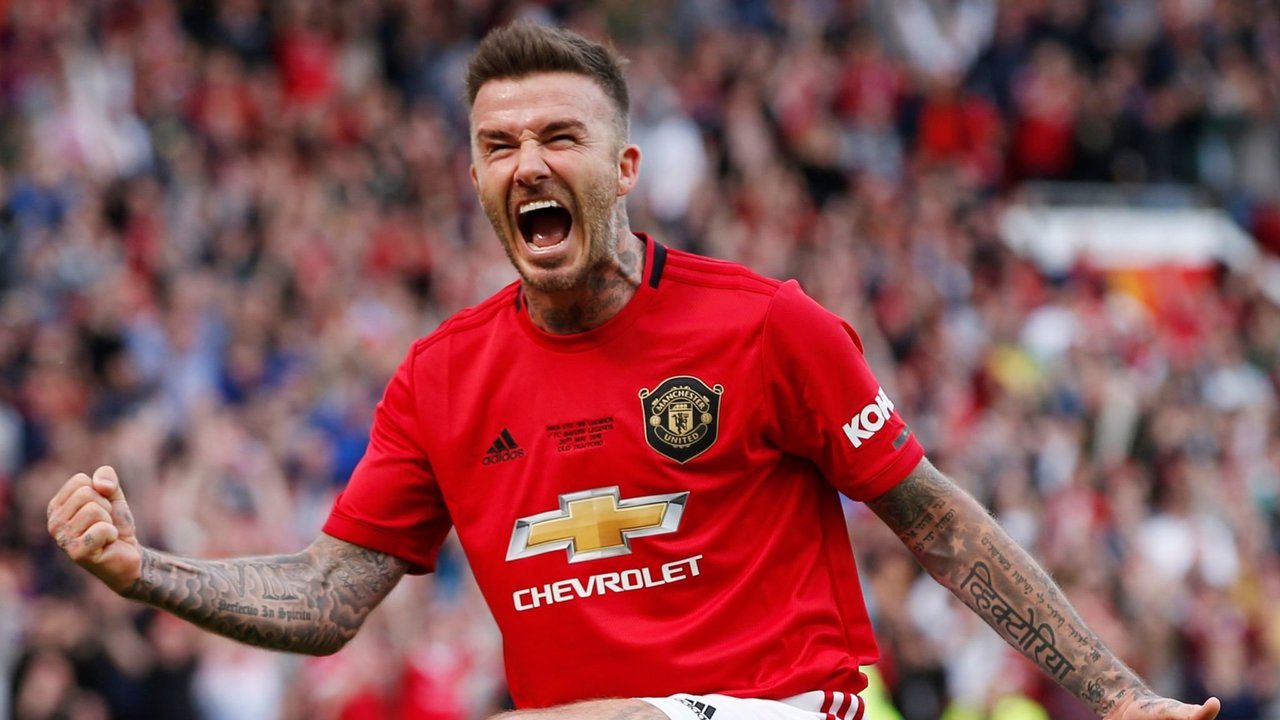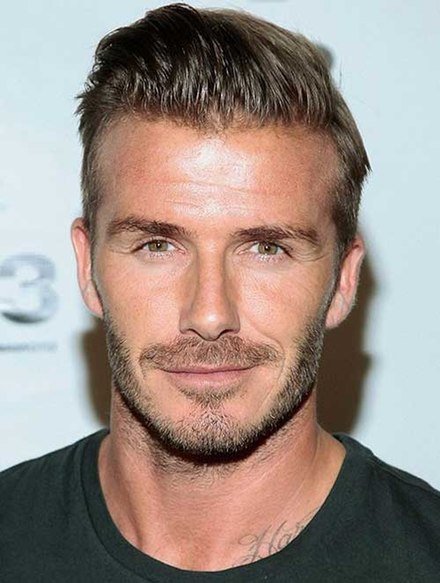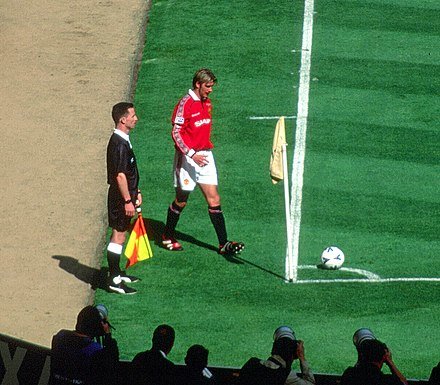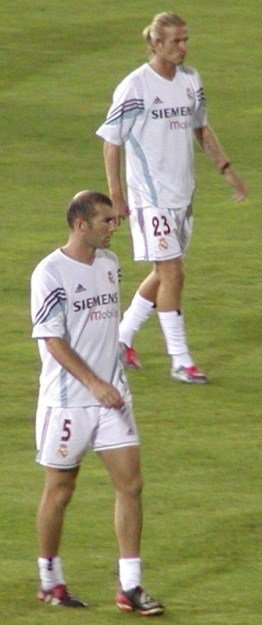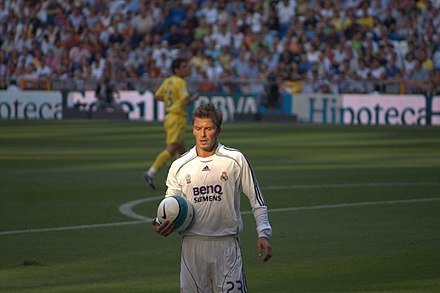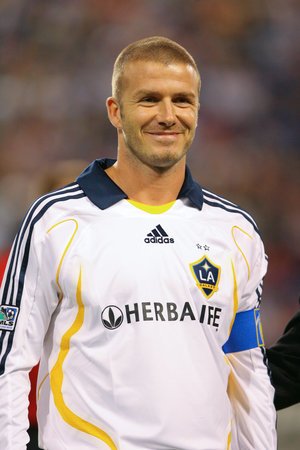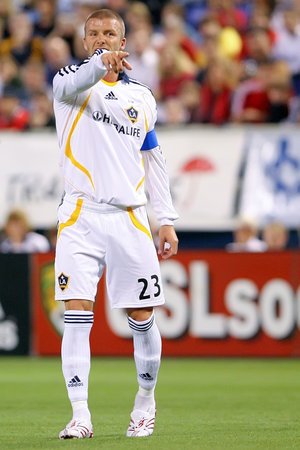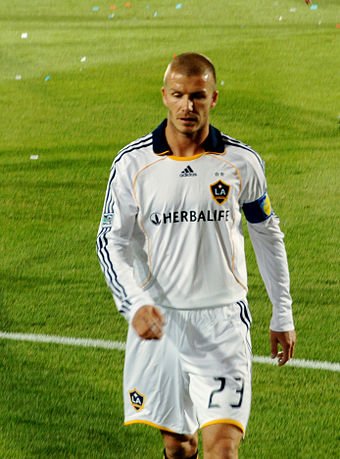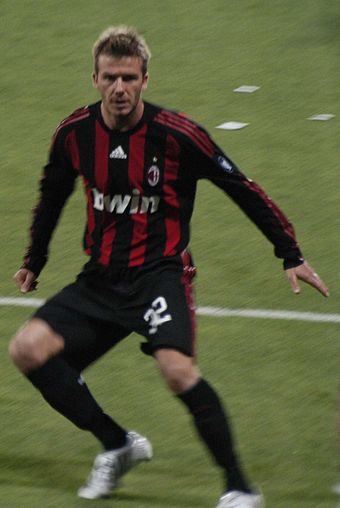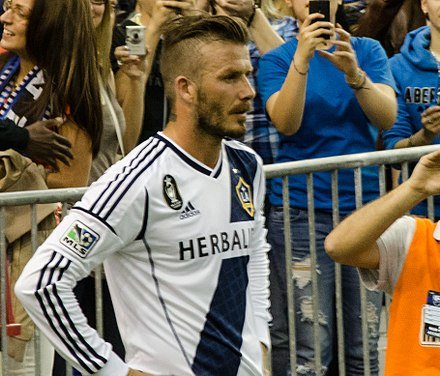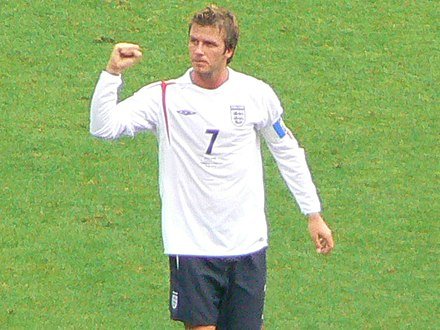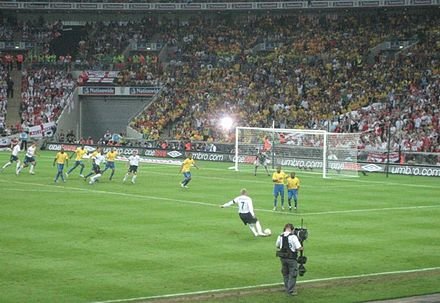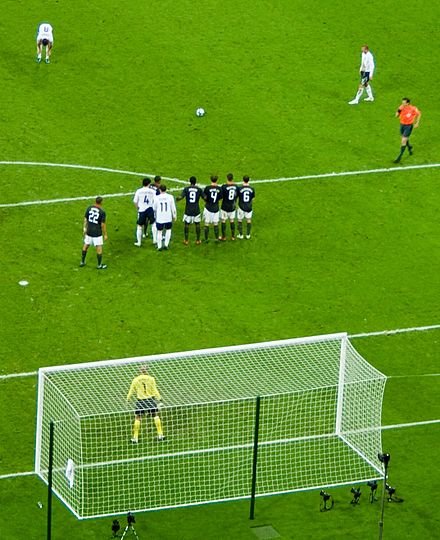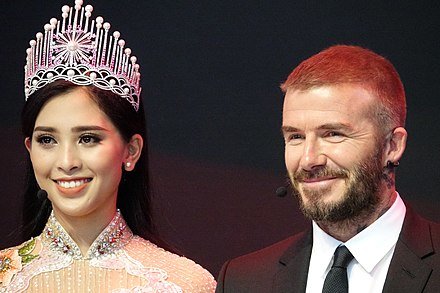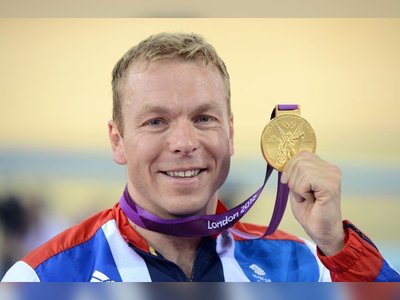British Heritage
Remember, Cherish, Learn.
beta
David Beckham - Footballer 2000s
Contribution to British Heritage.
David Beckham is one of the most iconic figures in British football history and has made significant contributions to British heritage through his illustrious career and global impact. Born on 2nd May 1975 in Leytonstone, London, Beckham's journey from a young football enthusiast to a global football superstar is a story that embodies the dreams and aspirations of millions of football-loving Britons.
Beckham's impact on British heritage lies in his role as a pioneer for British footballers abroad. He was the first English player to win league titles in four different countries, showcasing his talent and adaptability across diverse footballing cultures. His success abroad not only brought glory to British football but also raised the profile of English players in the global football landscape.
Moreover, Beckham's contributions to the English national team solidified his place in British football history. As the England captain for six years, he led the team in several major tournaments, including the FIFA World Cup and the UEFA European Championship. His appearances for England, along with his skillful displays on the pitch, inspired a generation of young footballers in Britain.
Additionally, Beckham's celebrity status and cultural impact have transcended football, making him a British cultural icon. He and his wife, Victoria Beckham, became a power couple in the worlds of fashion, entertainment, and philanthropy. His influence on popular culture and fashion trends has left an indelible mark on British heritage, reflecting the intersection of sport, celebrity, and British identity.
David Beckham's legacy in British football is multi-faceted and enduring. His skill and versatility as a right-winger, known for his precise passing, bending free-kicks, and exceptional crossing ability, have been hailed as some of the best in football history. He is celebrated as one of the greatest midfielders of his generation and a role model for aspiring footballers.
Beckham's impact on British heritage extends beyond the pitch. He demonstrated that British footballers could compete and excel on the international stage, inspiring a new generation of football talents in the country. His success in different leagues across Europe and the United States opened doors for other English players to explore opportunities abroad, showcasing British footballing talent on a global platform.
Furthermore, Beckham's status as a global ambassador for the sport has elevated the profile of British football around the world. He brought millions of fans from diverse cultures and nations together, all united in their admiration for his footballing prowess and charismatic personality. Beckham's influence helped promote British football as an integral part of global sporting heritage.
Beckham's contributions to British football are exemplified by his remarkable club career, which saw him play for some of the most prestigious clubs in Europe and beyond. He began his professional journey with Manchester United, where he quickly rose to prominence under the guidance of Sir Alex Ferguson. During his time at Old Trafford, Beckham played a pivotal role in securing numerous accolades for the club, including six Premier League titles, two FA Cups, and the UEFA Champions League trophy in 1999.
After his successful stint with Manchester United, Beckham embarked on a journey that showcased his adaptability and determination to succeed at the highest level. He ventured to Real Madrid in 2003, becoming part of the star-studded Galácticos era. While in Spain, Beckham played a key role in Real Madrid's La Liga triumph during the 2006-2007 season, showcasing his enduring impact on the field.
Beckham's contributions to British football also extended to his international career. As a proud representative of the England national team, he earned 115 caps and led the squad as captain for several years. His performances in major tournaments, such as the FIFA World Cup and UEFA European Championship, solidified his status as one of England's most beloved football icons.
David Beckham's success as a footballer is exemplified by the multitude of trophies and individual accolades he amassed throughout his illustrious career. During his time with Manchester United, Beckham won a total of six Premier League titles, two FA Cups, and the UEFA Champions League in 1999. His vital role in Manchester United's historic treble-winning season further cemented his status as a football legend.
Beckham's success continued in Spain, where he played for Real Madrid. While donning the iconic white shirt, he helped the club clinch the La Liga title during the 2006-2007 season, playing a key role in their triumphant campaign.
On the international stage, Beckham's contributions were equally significant. He led the England national team as captain for six years, amassing 115 appearances and participating in three FIFA World Cup tournaments and two UEFA European Championships.
Individually, Beckham's skill and impact were recognized with numerous accolades. He finished as the runner-up in the Ballon d'Or in 1999 and twice as the runner-up for FIFA World Player of the Year in 1999 and 2001. Beckham's name was enshrined in the FIFA 100 list, a testament to his standing among the world's greatest living players, as chosen by the legendary Pelé.
David Beckham's legacy as a footballer of the 2000s goes beyond his accomplishments on the pitch. His contributions to British heritage, success at top football clubs, and enduring impact on the global stage have made him a true icon of British football. Beckham's journey from a young boy with a passion for the game to a global superstar exemplifies the power of dedication, hard work, and talent in the world of sports. As a British cultural icon, Beckham's influence continues to inspire new generations of footballers and unite fans worldwide under the banner of the beautiful game.
Beckham's impact on British heritage lies in his role as a pioneer for British footballers abroad. He was the first English player to win league titles in four different countries, showcasing his talent and adaptability across diverse footballing cultures. His success abroad not only brought glory to British football but also raised the profile of English players in the global football landscape.
Moreover, Beckham's contributions to the English national team solidified his place in British football history. As the England captain for six years, he led the team in several major tournaments, including the FIFA World Cup and the UEFA European Championship. His appearances for England, along with his skillful displays on the pitch, inspired a generation of young footballers in Britain.
Additionally, Beckham's celebrity status and cultural impact have transcended football, making him a British cultural icon. He and his wife, Victoria Beckham, became a power couple in the worlds of fashion, entertainment, and philanthropy. His influence on popular culture and fashion trends has left an indelible mark on British heritage, reflecting the intersection of sport, celebrity, and British identity.
Legacy
David Beckham's legacy in British football is multi-faceted and enduring. His skill and versatility as a right-winger, known for his precise passing, bending free-kicks, and exceptional crossing ability, have been hailed as some of the best in football history. He is celebrated as one of the greatest midfielders of his generation and a role model for aspiring footballers.
Beckham's impact on British heritage extends beyond the pitch. He demonstrated that British footballers could compete and excel on the international stage, inspiring a new generation of football talents in the country. His success in different leagues across Europe and the United States opened doors for other English players to explore opportunities abroad, showcasing British footballing talent on a global platform.
Furthermore, Beckham's status as a global ambassador for the sport has elevated the profile of British football around the world. He brought millions of fans from diverse cultures and nations together, all united in their admiration for his footballing prowess and charismatic personality. Beckham's influence helped promote British football as an integral part of global sporting heritage.
Contribution to British Football
Beckham's contributions to British football are exemplified by his remarkable club career, which saw him play for some of the most prestigious clubs in Europe and beyond. He began his professional journey with Manchester United, where he quickly rose to prominence under the guidance of Sir Alex Ferguson. During his time at Old Trafford, Beckham played a pivotal role in securing numerous accolades for the club, including six Premier League titles, two FA Cups, and the UEFA Champions League trophy in 1999.
After his successful stint with Manchester United, Beckham embarked on a journey that showcased his adaptability and determination to succeed at the highest level. He ventured to Real Madrid in 2003, becoming part of the star-studded Galácticos era. While in Spain, Beckham played a key role in Real Madrid's La Liga triumph during the 2006-2007 season, showcasing his enduring impact on the field.
Beckham's contributions to British football also extended to his international career. As a proud representative of the England national team, he earned 115 caps and led the squad as captain for several years. His performances in major tournaments, such as the FIFA World Cup and UEFA European Championship, solidified his status as one of England's most beloved football icons.
Success and Achievements
David Beckham's success as a footballer is exemplified by the multitude of trophies and individual accolades he amassed throughout his illustrious career. During his time with Manchester United, Beckham won a total of six Premier League titles, two FA Cups, and the UEFA Champions League in 1999. His vital role in Manchester United's historic treble-winning season further cemented his status as a football legend.
Beckham's success continued in Spain, where he played for Real Madrid. While donning the iconic white shirt, he helped the club clinch the La Liga title during the 2006-2007 season, playing a key role in their triumphant campaign.
On the international stage, Beckham's contributions were equally significant. He led the England national team as captain for six years, amassing 115 appearances and participating in three FIFA World Cup tournaments and two UEFA European Championships.
Individually, Beckham's skill and impact were recognized with numerous accolades. He finished as the runner-up in the Ballon d'Or in 1999 and twice as the runner-up for FIFA World Player of the Year in 1999 and 2001. Beckham's name was enshrined in the FIFA 100 list, a testament to his standing among the world's greatest living players, as chosen by the legendary Pelé.
Conclusion
David Beckham's legacy as a footballer of the 2000s goes beyond his accomplishments on the pitch. His contributions to British heritage, success at top football clubs, and enduring impact on the global stage have made him a true icon of British football. Beckham's journey from a young boy with a passion for the game to a global superstar exemplifies the power of dedication, hard work, and talent in the world of sports. As a British cultural icon, Beckham's influence continues to inspire new generations of footballers and unite fans worldwide under the banner of the beautiful game.
- David Beckhamen.wikipedia.org
